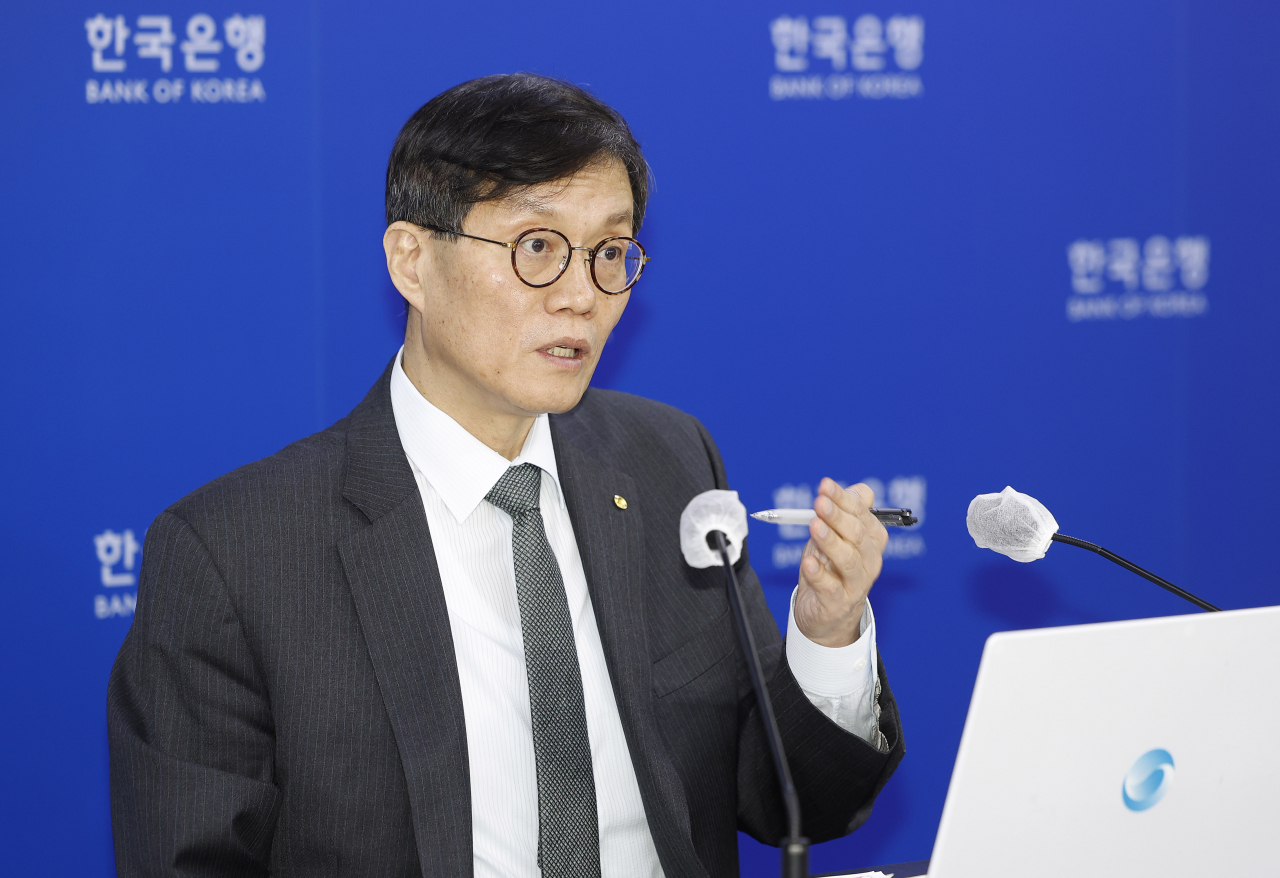 |
Bank of Korea Governor Rhee Chang-yong speaks at a press briefing held Friday at the central bank's headquarters in Seoul. (Yonhap) |
The Bank of Korea continued a streak of seven consecutive rate hikes, making the base rate stand at 3.5 percent.
The central bank announced Friday it has raised the benchmark rate by 25 basis points, deeming that inflation has yet cooled down.
With the hike, the base rate has reached 3.5 percent, the highest figure in more than 14 years, since the rate stood at 4 percent in November 2008. Prior to the bank’s aggressive policy cycle, the benchmark rate stood at 0.5 percent in July 2021.
“Though it is projected that the economic growth rate will be lower than expectations, the inflation rate still remains high. We have decided to raise the base rate by 25 base points for price stability,” BOK Governor Rhee Chang-yong said at a press briefing held after the central bank announced its new policy rate.
“The monetary policy should be maintained with its focus on price stability,” Rhee said, reaffirming the central bank’s foremost agenda in the past months.
Though the consumer price index, an important inflation index, fell slightly to the 5 percent range after reaching its peak at 6.3 percent in July, it still surpasses the 2 percent target set by the central bank.
Rhee said it is likely the index would stay in the 5 percent range until February and start to fall in the first half of the year. Yet, he added, the economic growth rate would be lower than the projected 1.7 percent from November as volatility remains high.
The US Federal Reserve's string of rate hikes also signaled an inevitable raise for Korea. Prior to Friday's hike, the gap between the base rate of Korea and the US went up to 1.25 percentage points, the highest figure to be seen since 1.5 percentage points in October 2000.
However, the raise also signals a slowdown in the central bank’s rate hikes. The central bank raised the base rate by 25 basis points in November, too, contrary to its previous two times raises of 50 basis points.
Two of the six-member rate-setting committee, excluding Rhee, voted for a rate freeze, the central bank chief said.
The bank viewed global inflation starting to slow due to the decline in global oil prices.
Still, Rhee warned against the anticipations deeming the bank’s monetary tightening policy could be over soon.
“A discussion on rate fall would be made when there is an assurance that the price is nearing the target point. For the time being, it is premature to discuss whether there would be a rate cut within the year,” Rhee said.
Though the base rate has reached the 3.5 percent mark projected to be the terminal rate in November, Rhee said the figure is not fixed.
“The term terminal rate should be used to project the peak of base rate in a three-month period,” Rhee said. “Three members of the committee said we should set the rate at 3.5 percent and wait and see, the other three said we should leave room for the possibility of 3.75 percent.”
The next round of rate-setting is slated to take place on Feb. 23, following the US Federal Reserve’s Federal Open Market Committee meeting happening Jan. 31 to Feb. 1.







![[Weekender] Korea's traditional sauce culture gains global recognition](http://res.heraldm.com/phpwas/restmb_idxmake.php?idx=644&simg=/content/image/2024/11/21/20241121050153_0.jpg)